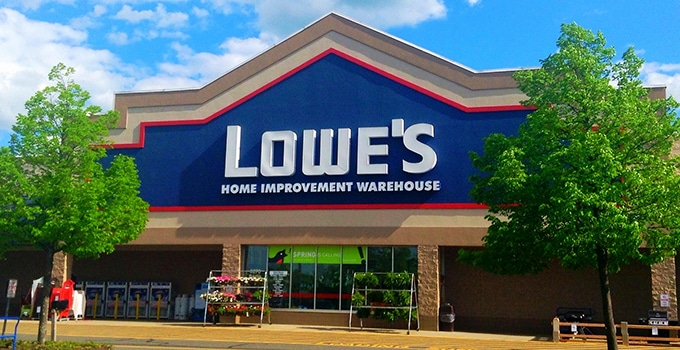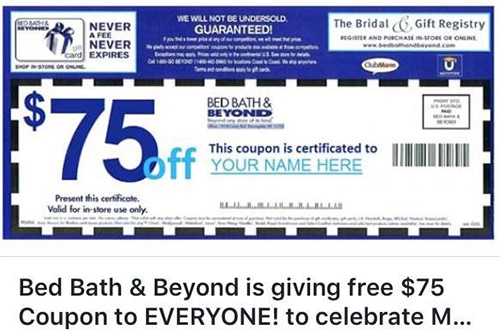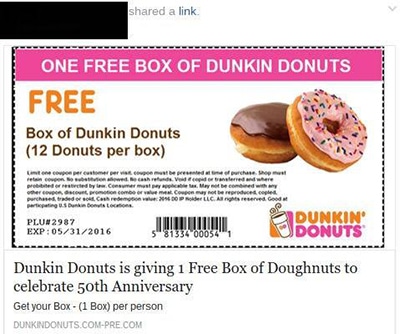Lowe’s, Bed Bath & Beyond Warn of Facebook Coupon and Gift Card Scams
April 2025 by couponlab

Many of us are preparing for Mother’s Day and looking for sales on flowers and other mom-friendly gifts, but there are some folks out there looking to prey on our shopping needs. Lowe’s, Bed Bath & Beyond and a few other retailers have been plagued by scam coupons and gift card offers through a sketchy Facebook sign-up process that targets unsuspecting shoppers looking for a great deal.
Facebook users may have noticed some advertisements or shared posts that claim Lowe’s is offering a $50 gift card for Mother’s Day that can be redeemed by anyone. This, according to Lowe’s, is a scam. The company has stated, “Please be careful when responding to any pop up ad either online or via social media; as, more often than not, the offer of gift cards or other prizes to customer’s in the guise of a specific company are set up to get your personal information for nefarious purposes.” The same goes for a $75 Bed Bath & Beyond coupon going around on the social media site, which the company has explicitly addressed on their own Facebook page.

From Bed Bath & Beyond’s Facebook
Snopes.com warns of more scams from identity thieves, like a recent one targeting Dunkin’ Donuts customers with a coupon for a free box of donuts. The coupon is circulating on Facebook as a shared post with the target URL “dunkindonuts.com-pre.com,” clearly not the actual URL to the Dunkin’ Donuts website.

From Snopes.com
Snopes gives this advice to help understand, identify and avoid scams like this:
“All require Facebook users to forward the phony coupon on to their Facebook friends, increasing the number of potential victims. They also instruct targets to complete out a simple survey and promise an outsized reward for a minor effort, a seemingly harmless task that often mines sensitive information such as e-mail addresses, telephone numbers, dates of birth and credit card details.
Finally, the completion of the ‘survey’ never results in the receipt of a coupon for Bed Bath & Beyond (or any other known brand appropriated by scammers). Often, the ruse results in a subscription for difficult-to-cancel ‘Reward Offers,’ or simply the disclosure of personal details to social media grifters. In a best-case scenario, such efforts are a simple but effective like-farming scam, which can lead to embarrassment if the “liked” page is converted into an unpalatable one with risqué or rude content.”
If something seems too good to be true, it probably is, and you’re better off ignoring it than risking your personal information and security for a coupon. If anything is asking you for personal information, like your home address or telephone numbers, think again before filling it out. Don’t be afraid to contact the company in question to verify that the deal is legitimate; you might have to wait for the answer, but it beats having to cancel all your credit cards. Some of these scams will also ask you to share the posts, which often involves connecting your Facebook account to their sites, compromising your identity further by accessing personal data you’ve shared in your profile, your browsing habits and those of your friends. If anything asks you to connect your account, always be wary, as you shouldn’t need to sign in to anything just to share a post on Facebook.
Always remember to check the URL of a post before clicking on it by hovering over the link and looking in the bottom left-hand corner of your browser window. Make sure the target destination has a .com suffix or that it matches the exact URL of the retailer you’re trying to navigate to. If you encounter a malware warning when navigating to a page, even if you’re sure it’s legitimate, back out immediately and stay off that site; your browser, operating system and virus protection software are warning you for a reason. Don’t click on anything not officially endorsed by a company, and always check their site to make sure an offer is real.
The Internet is a wonderful place for finding great deals and coupons, but it can be dangerous, even for savvy users. Always be cautious when you click, as the little extra time it takes to verify something as legitimate can save you a world of trouble later.
Table of Contents